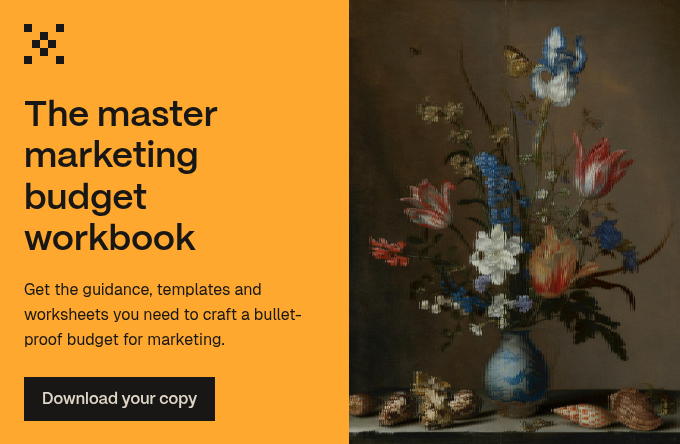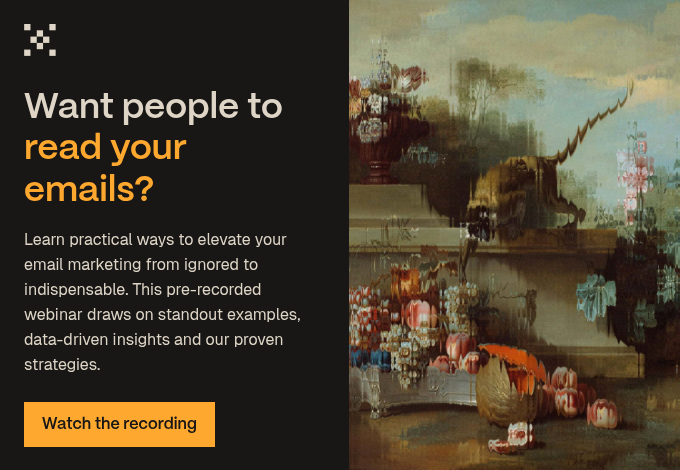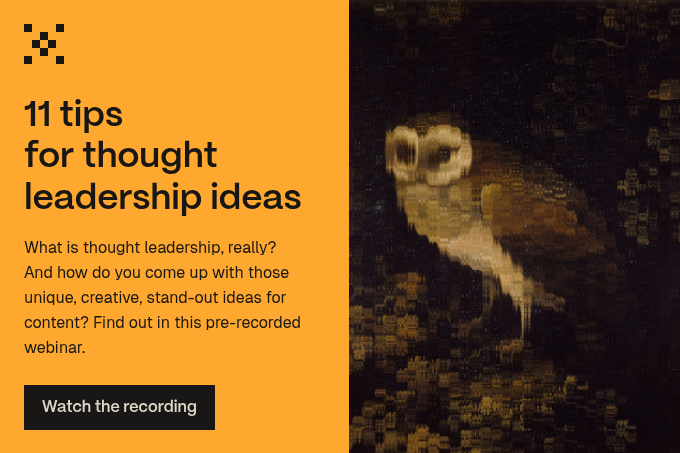Giving an interview should be a positive experience. It’s not like public speaking and it’s not like being cross-examined by Jeremy Paxman. A good interview is like a focused, directed conversation between two professionals.
When I was a freelance journalist, before I started Articulate Marketing, I did twenty or so interviews a week. Even now, more than a decade later, I still do a lot of interviews. There are few pieces of writing that can't be improved with more and better interviews.
Prepare (but not too much)
- Be yourself. Be concise and answer the question put to you. The more natural you sound, the better the interview. See my article: Being human is overrated (except when you're writing).
- Do think about what you would like to say. Think about the kinds of things you want to communicate and the sorts of questions you are going to get asked but don’t write prepared statements.
- Agree an agenda and schedule. Agree at the beginning how long the interview will last and a rough agenda so that you get through everything in the time available.
- Don't ask for questions in advance. It is reasonable to ask a journalist what sort of questions they may ask and what topics they want to cover when arranging the interview, but don’t ask for a list of questions in advance – they won’t have it and even if they do, they won’t send it to you. It’s not that they want to catch you out, it’s just that they want your answers to be fresh and spontaneous, not rehearsed.
- Do your own research. Read the interviewer's other work, Google them, look them up in LinkedIn, read the magazine or newspaper the article will be published in. This is much more useful than preparing cod answers to cod questions.
- Pick your time well. I am terrible before 10am and after about 5pm. Try to pick a time when you will be relaxed and 'on form'.
- Be accessible. Give the journalist a phone number and an email address. Don't hide behind a PR company because they will add two days and extra cost to every interaction. Be flexible about arranging the interview. Don't be like the publicity-hungry airline executive I interviewed once who gave 24 hours notice of an interview, cancelled on four hours notice, rescheduled to the next day promising an hour but only gave fifteen minutes. And then complained that he only got a one page article.
- Prepare yourself. Have a friendly journalist or PR ex-journalist do a mock interview with you. Get some media training (although please keep some personality and candour afterwards - don't turn into media puppet). Think about what life is like for a freelance journalist.
On the day
- Let the interviewer lead. If they seem to want you to talk more, talk more. If they sound impatient and keep interrupting, be more concise.
- Don't talk too quickly. Talking slowly emphasises the points you want to make and increases credibility. There is some evidence to suggest that has psychological overtones of confidence and power. It also makes people listen harder. It gives you more time to think and the poor journalist more time to write notes. (Read why interviews go wrong for a better understanding of what can happen.)
- Don't be put off by tape recorders. Some interviewers use a tape recorder and work from the recording and some will write notes during the interview (I do both).
Think about the interviewer
- Remember what the interviewer wants. Usually they want three things: 1) a better understanding of the topic, 2) something new and interesting to say to their readers and 3) quotable quotes that will punctuate the story. If you don't give them good, human quotes, they'll make up Frankenquotes.
- The interviewer is human. My best interviews come from a natural rapport with the interviewee. If they are defensive, it makes me defensive but if they are friendly, I am friendly. It's just human nature. Part of my job is to put my victims at ease but I need something to work with.
- Turn up on time. If I arrange to interview ten people, there will always be at least one who doesn't show up or who doesn't answer their phone. Some try to reschedule, some disappear. I schedule lots of interviews during an interview day and if someone misses their slot, I normally can't fit them in later.
- Don't ask to review the article. For corporate work, this is usually possible though time-consuming. For journalistic interviews, it is a practical and often a contractual impossibility. It complicates the production cycle, most writers’ assignments specifically forbid it and editors fear that people will get all nannyish and try to rewrite a piece to turn a good interview back into a bland, committee-written press release.
Keep your guard up
There are two things to be wary of. These are tricks that unscrupulous journalists sometimes use. Journalists aren't all tabloid hacks but it makes sense to be on your guard.
- No such thing as off the record. Unless you know and absolutely trust the interviewer, don’t say anything ever that you wouldn’t want to appear in print. A good journalist will respect an off the record comment or an inadvertent slip; but the only guarantee comes if you don’t make them. However, don't do what one of my interviewees did once: ask for the entire interview to be off the record and then complain to my editor when he wasn't quoted.
- Don't let the journalist put words in your mouth. Some people think this is a legitimate tactic. For example, “your industry is in a terrible mess and only a bloodbath will sort things out, wouldn’t you agree.” If you don’t disagree they might put those words into quotes as if you said them. So, listen carefully to what they say and if they ask a question in that format, get in touch with your inner politician and say “I’m not sure I agree with that entirely. What I think is …”
This article is about giving a great press interview. For more tips on job interviews read How to get the job you really want instead. This post was first published on 7 February 2006 and I have updated it with new content.




.jpg?width=400&height=250&name=art-institute-of-chicago-wasoFWW8G1c-unsplash%20(1).jpg)

/letters.webp?width=400&height=250&name=letters.webp)
